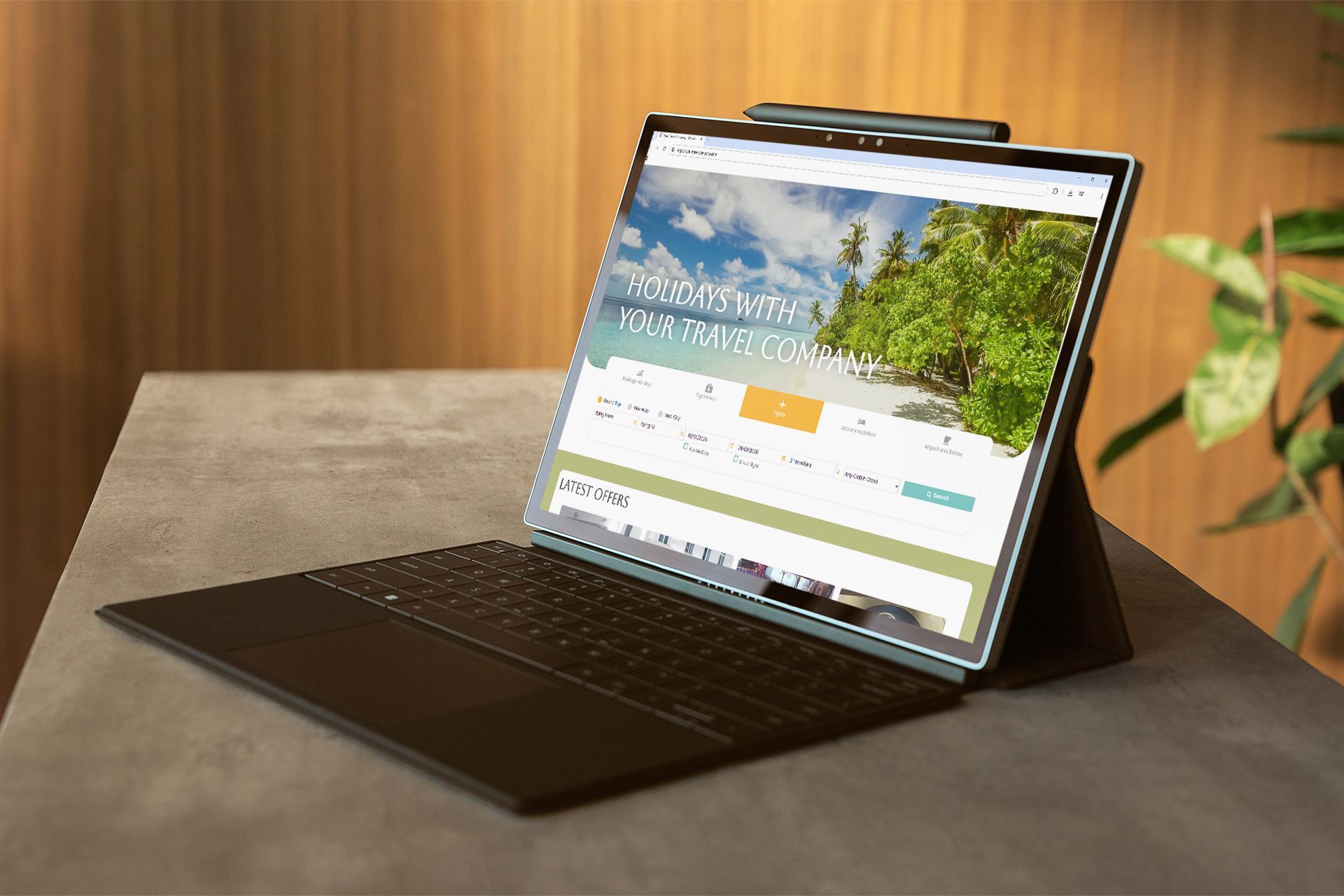How Crucial Are Online Booking Systems For Today's Travel Agents?
Just as technology continues to reshape the travel industry, online booking systems have become a vital tool for your success as a travel agent. In a rapidly evolving market where customer expectations are higher than ever, having a streamlined system ensures you can provide an efficient and user-friendly experience. By embracing these platforms, you can save time, reduce errors, and ultimately enhance your client relationships. Understanding their importance will empower you to stay competitive and meet the demands of today’s savvy travellers.
Key Takeaways:
- Efficiency: Online booking systems streamline the reservation process, saving time for travel agents and enhancing productivity.
- Client Experience: These systems provide clients with a user-friendly interface, allowing them to view options and make bookings easily, thereby improving customer satisfaction.
- Accessibility: Travel agents can access bookings and manage reservations from anywhere, enabling them to serve clients more effectively regardless of location.
- Real-time Updates: Online systems provide up-to-date information on availability, pricing, and changes, ensuring agents have the latest data at their fingertips.
- Competitive Edge: Adopting online booking technologies can help travel agents stand out in a highly competitive market by offering modern and convenient services.
The Evolution of Travel Agents
A significant transformation has taken place in the travel industry over the years, reshaping the role of travel agents. From a time when trips were booked entirely through paper brochures, travel agents have now adapted to a digital landscape. To discover the Top 10 Benefits of Online Booking System, you'll appreciate how technology has enhanced your ability to serve clients efficiently.
Historical Booking Methods
Around the mid-20th century, booking methods were predominantly manual, involving phone calls and face-to-face interactions. Clients relied on travel agents to source information from brochures and guidebooks, which limited the options available and often resulted in lengthy transactions.
Transition to Digital Solutions
The digital revolution has dramatically altered how travel agents operate. With the rise of online platforms, you now have access to vast resources and tools that streamline the booking process, enabling you to provide a more efficient and user-friendly experience for your clients.
It is necessary to understand that embracing digital solutions not only saves valuable time but also enhances your ability to compete in a fast-paced market. By integrating online booking systems, you can offer clients immediate access to availability and pricing, leading to quicker decision-making. This transition empowers you to manage bookings more effectively while leveraging data analytics to better understand client preferences. Ultimately, adapting to this change will cultivate stronger client relationships and drive your business forward in an increasingly digital age.
Benefits of Online Booking Systems
Even in today’s fast-paced environment, online booking systems offer considerable advantages for travel agents. These systems streamline operations, cut down on administrative work, and minimise errors, allowing you to focus on providing an exceptional service to your clients. By automating the booking process, you can manage inventory efficiently, thus enhancing your productivity and bottom line.
Increased Efficiency
Booking through an online system simplifies the entire process. You can handle numerous reservations simultaneously, reducing time spent on manual entries and queries. This means you can serve more clients effectively while freeing up time to concentrate on sales and client relationships.
Enhanced Customer Experience
Any travel agent understands the importance of exceeding client expectations. By implementing an online booking system, you provide your customers with immediate access to travel options tailored to their needs. This not only allows them to browse and book at their convenience but also improves the overall satisfaction of their journey.
But the advantages don't stop at convenience. An online booking system enables 24/7 availability, meaning clients can secure their bookings anytime, anywhere. This flexibility boosts their confidence in your services, as they feel they have autonomy over their travel plans. Additionally, instant confirmation sends a message of efficiency and professionalism, reinforcing your brand's reliability. In embracing such technology, you ensure your clients receive high-quality service while positioning yourself as a modern travel professional.
Challenges Faced by Travel Agents
After navigating a changing landscape, travel agents encounter several challenges that can affect their efficiency and client satisfaction. These hurdles include adapting to new technologies, managing client expectations, and competing against alternative booking methods, which can often offer a more streamlined experience. Understanding these challenges is crucial for any travel agent looking to thrive in today’s market.
Technical Limitations
Faced with numerous technical limitations, travel agents often struggle to keep pace with the rapidly evolving online booking systems. Many agents work with outdated technology, hindering their ability to provide a seamless experience. This can result in inefficiencies and errors, potentially compromising your customers' experience and satisfaction.
Competition from Self-Service Platforms
About the rise of self-service booking platforms, travel agents must confront a significant challenge in maintaining their market share. These platforms facilitate a quick and easy way for clients to handle their travel arrangements independently, often at lower costs. As a result, your traditional services may seem less appealing, even if they provide a higher level of personalised service.
Competition from self-service platforms is becoming increasingly fierce, with players like online travel agencies and aggregators dominating the landscape. These platforms offer lower prices and instant access to various travel options, which can undermine your sales. However, it's crucial to focus on the unique value you offer; your expertise and personalised service can differentiate you from automated options. Leveraging technology to enhance your offerings, while fostering strong relationships with clients, can ensure that your business remains relevant and competitive in this challenging environment.
Key Features of Effective Online Booking Systems
For travel agents seeking to enhance their services, an effective online booking system should include key features such as:
- Real-time Availability
- Multiple Payment Options
- User-friendly Interface
- Mobile Compatibility
- Comprehensive Reporting
- Customisable Booking Form
Any system that lacks these features may hinder your ability to serve clients efficiently.
User-Friendly Interfaces
Below the surface, a user-friendly interface is vital for ensuring that customers can navigate your booking system seamlessly. An intuitive design enhances the user experience, reduces frustration, and ultimately drives more bookings. Prioritising accessibility will cater to a broader audience, providing them with the confidence to complete their purchases.
Integration Capabilities
Above all, integration capabilities allow your online booking system to connect with other crucial tools and platforms, ensuring a cohesive workflow. You'll want to ensure that your system can interface with CRMs, payment gateways, and operational software to streamline processes and enhance customer service.
Integration not only fosters efficiency but also automates various tasks, reducing the manual workload on you and your team. The ability to sync data in real-time is crucial for maintaining accurate records and improving communication with clients. Moreover, seamless integration can lead to improved marketing opportunities by allowing you to gather and analyse customer data effectively. Ultimately, implementing a system with robust integration capabilities can significantly boost your travel agency's operational effectiveness.
Case Studies of Successful Travel Agencies
Once again, you can see the significant benefits that online booking systems bring to travel agencies through various successful case studies:
- Agency A: Increased bookings by 30% after implementing an online platform.
- Agency B: Achieved a 25% reduction in administrative tasks, allowing agents to focus on customer service.
- Agency C: Enhanced customer satisfaction ratings by 40%, directly linked to streamlined online processes.
- Agency D: Grew its market reach by 50% due to improved online visibility and user engagement.
Agencies Utilising Online Systems
Between various travel agencies, those that have embraced online booking systems consistently outperform their counterparts. They have streamlined operations, minimised manual processes, and enhanced client interactions, ultimately leading to sustained growth and customer loyalty.
Impact on Business Outcomes
For agencies that have integrated online systems, the shift has resulted in measurable improvements. This can be seen in areas such as increased revenue, higher customer retention, and improved operational efficiency.
Understanding the impact on business outcomes is crucial to your agency's success. Those who adopt online booking solutions often witness a 30-50% increase in revenue, with additional gains in customer satisfaction that enhance your brand reputation. Furthermore, the reduction in manual workloads allows for a focus on creating tailored experiences for your clients, establishing lasting relationships that are crucial in today’s competitive environment. The potential challenges of technology adoption are far outweighed by the benefits, making the shift to online systems not just advantageous, but crucial in harnessing growth opportunities in the travel industry.
The Future of Travel Booking
Keep in mind that the future of travel booking lies in its ability to adapt to changing consumer needs and technological advancements. As more travellers seek seamless and personalised experiences, travel agents must embrace innovative online booking systems that streamline the reservation process while enhancing customer satisfaction.
Trends in Technology
Between advancements in artificial intelligence, machine learning, and mobile applications, travel technology is evolving rapidly. You can expect to see more intuitive booking interfaces, predictive analytics for customisation, and chatbots offering 24/7 assistance, ensuring your clients have the best possible experience.
Potential Market Changes
After analysing industry indicators, it's evident that the landscape of travel booking is shifting. As traveller preferences evolve towards sustainability, more online platforms will prioritise eco-friendly options, which you must be prepared to integrate into your services.
Even within these potential market changes, you should focus on incorporating sustainable travel options and flexible booking policies to cater to the evolving preferences of your customers. The rise of remote work may result in increased demand for extended stays or workation packages. Your ability to adjust to these shifts will not only help you remain competitive, but will also position you as a forward-thinking agent in an ever-changing landscape.
Summing up
Drawing together the insights, online booking systems are important for your travel agency's success in today's digital landscape. These platforms streamline your operations, enhance customer experience, and provide vital access to real-time information. By integrating these systems, you can efficiently manage bookings, optimise your resources, and ultimately improve your service offerings. Embracing this technology not only keeps you competitive but also allows you to meet your clients' evolving needs, ensuring their satisfaction and loyalty in an increasingly demanding market.
FAQ
Q: Why are online booking systems important for modern travel agents?
A: Online booking systems are crucial for modern travel agents as they streamline the booking process, allowing agents to efficiently manage client reservations while accessing a wide range of travel products. These systems provide real-time availability, pricing, and confirmations, significantly enhancing the overall customer experience. Additionally, having a robust online system helps agents optimise their time and focus on providing personalised service to their clients.
Q: How do online booking systems enhance customer service?
A: Online booking systems enhance customer service by offering clients the convenience of 24/7 access to travel options, enabling them to make bookings at their own pace. With features such as user-friendly interfaces, instant confirmations, and personalised recommendations based on previous bookings, agents can quickly address customer queries and provide tailored solutions. This level of service encourages customer loyalty and satisfaction.
Q: Can online booking systems help travel agents increase their sales?
A: Yes, online booking systems can significantly help travel agents increase their sales. By integrating various travel services such as flights, accommodations, and activities into one platform, agents can offer comprehensive packages that appeal to clients. Additionally, many online systems feature upselling and cross-selling tools that suggest complementary products, thereby boosting the overall transaction value and enhancing the customer experience.
Q: Are there cost-saving benefits associated with online booking systems for travel agents?
A: Absolutely, online booking systems can provide cost-saving benefits for travel agents. Traditional booking methods often require more manpower and resources, but an efficient online system automates many tasks, reducing the need for extensive administrative work. This efficiency allows agents to allocate their resources towards growth initiatives, marketing efforts, and enhancing their service offerings without inflating operational costs.
Q: What should travel agents consider when choosing an online booking system?
A: When opting for an online booking system, travel agents should consider factors such as user-friendliness, integration capabilities with existing tools (like CRM systems), customer support services, and the range of travel products offered. It is also important to evaluate the system's scalability to accommodate future growth, as well as data security measures to protect client information. Ultimately, the right system should align with the agency’s unique needs and enhance their current operations.




